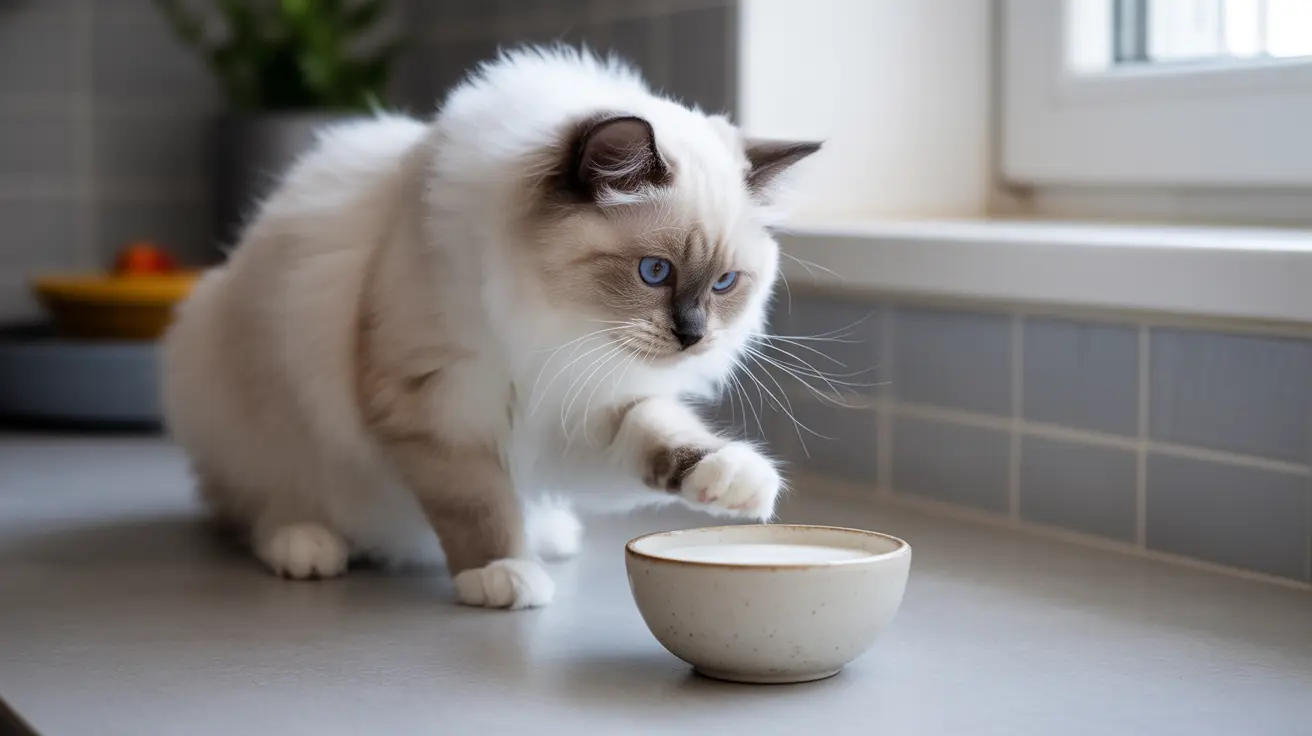Understanding Oat Milk and Cats
Oat milk is made by soaking and blending oats with water, then straining the mixture to create a milk-like beverage. While it's becoming increasingly popular among humans for its creamy texture and nutritional benefits, cats have very different dietary needs that make oat milk largely unnecessary in their diet.
As obligate carnivores, cats require specific nutrients from animal sources that plant-based beverages simply cannot provide. Their digestive systems are designed to process meat-based proteins and fats, not plant-based alternatives.
Safety Considerations and Serving Size
If you decide to offer oat milk to your cat, keep these important guidelines in mind:
- Only use plain, unsweetened oat milk
- Limit portions to 1-2 tablespoons occasionally
- Never replace water with oat milk
- Avoid flavored varieties, especially those containing vanilla or artificial sweeteners
Monitor your cat closely after their first taste of oat milk to ensure they don't experience any adverse reactions.
Potential Risks and Concerns
Digestive Issues
Some cats may experience gastrointestinal upset when consuming oat milk, including:
- Diarrhea
- Vomiting
- Bloating
- Gas
- Stomach discomfort
Nutritional Implications
Regular consumption of oat milk can lead to several nutritional concerns:
- Unnecessary carbohydrate intake
- Empty calories that contribute to weight gain
- Reduced appetite for nutritionally complete cat food
- Potential nutrient imbalances
Better Alternatives for Your Cat
Instead of oat milk, consider these healthier options for your cat:
- Fresh, clean water available at all times
- High-quality wet cat food for additional hydration
- Specially formulated cat milk products (in moderation)
- Water fountains to encourage drinking
Frequently Asked Questions
Is oat milk safe for my cat to drink, and how much can I give?
Plain, unsweetened oat milk is generally safe for cats in very small amounts (1-2 tablespoons occasionally). However, it should never be a regular part of their diet.
Can oat milk replace water or regular cat food in my cat's diet?
No, oat milk should never replace water or regular cat food. Cats need fresh water for hydration and complete, balanced cat food for proper nutrition.
What are the risks of feeding my cat flavored or sweetened oat milk?
Flavored or sweetened oat milk can contain harmful ingredients like artificial sweeteners, excess sugars, and additives that may cause digestive issues or contribute to obesity in cats.
Why does oat milk provide little nutritional benefit for cats?
Cats are obligate carnivores requiring animal-based proteins and nutrients. Oat milk is plant-based and lacks the essential amino acids, taurine, and other nutrients cats need for optimal health.
How can I tell if my cat has an adverse reaction to oat milk?
Watch for signs like vomiting, diarrhea, lethargy, bloating, or changes in appetite within 8-12 hours of consumption. If you notice any of these symptoms, discontinue oat milk and consult your veterinarian.
Conclusion
While cats can have small amounts of plain oat milk as an occasional treat, it offers no significant nutritional benefits and could potentially cause problems if given in large quantities or too frequently. The best approach to keeping your cat healthy and hydrated remains providing fresh water and a balanced, species-appropriate diet.
Always consult with your veterinarian before introducing any new foods or treats into your cat's diet, especially if your pet has existing health conditions or dietary restrictions.






